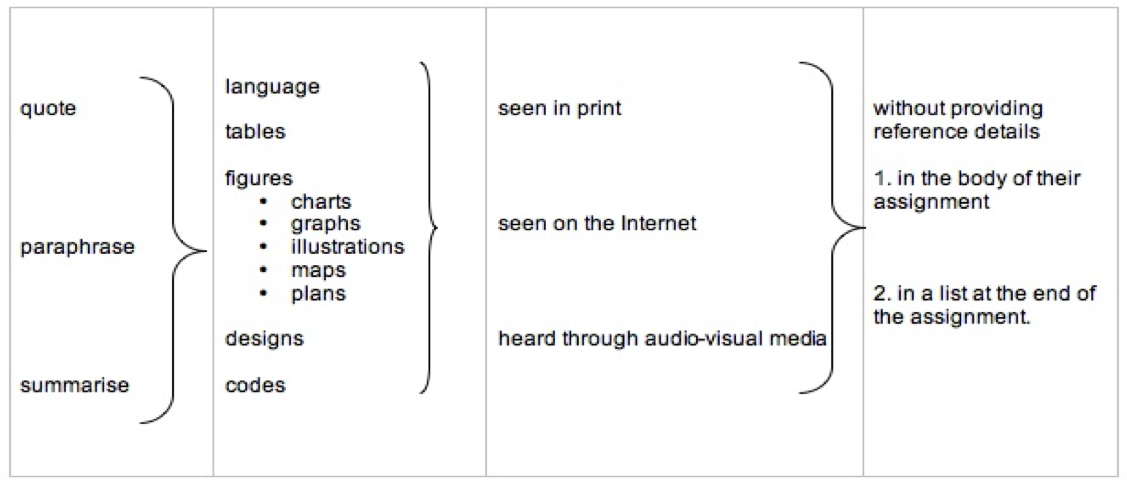Unit 2: Paraphrasing and Avoiding Plagiarism
10 Plagiarism and Academic Misconduct
What is plagiarism?
Plagiarism means presenting the words or ideas of others without giving credit. You should know the principles of plagiarism and the correct rules for citing sources. In general, if your paper implies that you are the originator of words or ideas, they must in fact be your own.
1) There are two types of plagiarism (to be described below):
a) Deliberate plagiarism = cheating, theft, fraud
b) Accidental plagiarism = not following the conventions when writing for publication or for university assignments.
2) The penalties for plagiarism are serious. You might:
a) fail the assignment,
b) fail the class, or
c) be expelled from the university.
Deliberate Plagiarism
Deliberate plagiarism (or intentional plagiarism) is cheating. It is:
1) submitting an assignment which was all or partly written or designed by someone else. This includes:
a) copying from someone you know
b) downloading or buying from an Internet site
c) allowing another person to submit your work as his/her own
d) working together with another student on an assignment, and then submitting individual work which is very similar in content and language.
Accidental Plagiarism
Some students are surprised to learn that they are plagiarizing when they:
Watch the two videos below on plagiarism:
Video 1: Avoiding Plagiarism
This video was produced by: GCFLearnFree.org. (2018, September 13). Avoiding plagiarism. [Video]. YouTube.
Video 2: What is Plagiarism and How to Avoid it
This video was produced by: BrockLibrary. (2014, September 2). What is plagiarism and how to avoid it. [Video]. YouTube.
For a deeper dive
|
For a visual representation of the types of plagiarism, watch this video (3:58) created by WriteCheckVideos:

